
Oscar Goff is the film section editor and senior critic for Boston Hassle. His noseprints can currently be seen on the front doors of every movie theater in the greater Boston area.
As the abomination of a year that is 2020 comes to a close, there has been a small but vocal contingent of film critics who have floated the idea of pushing their year-end lists to coincide with the delayed 2021 Oscars, or, more dramatically, skipping the ritual altogether. The thinking, of course, is that 2020 hasn’t been a real year of movies, with so many major releases being shuffled to dates unknown (or worse, HBO Max). This line of thinking is, to my mind, completely and utterly insane. We may not have gotten all the movies we thought we were going to, but we got a damn good slate of releases. What’s more, in the absence of big, noisy Hollywood product, we were able to give a number of smaller films more of our time and consideration than they ordinarily would have dreamed of. Here at the Hassle, the temporary and ongoing closures of Boston’s beloved moviehouses has forced us to turn our entire content model upside down (I know I’ve been beating this drum for months, but please please please support your local cinema), but between online festivals and digital releases, we’ve managed to have our most prolific year ever. I personally have maintained a nearly unbroken clip of reviewing at least one new film a week since May. 2020 may be a disaster, but there is life among the ruins.
All of this is to say that any difficulty I’ve had compiling my year-end list has not been for lack of choices. On the contrary, I have seen so many amazing films this year that I had difficulty narrowing them down to a mere ten (ish). Before we begin, a few notes on my list:
- You may notice the conspicuous absence of several films which have been dominating the year-end conversation among critical and awards circles. Make no mistake, Nomadland, Sound of Metal, Minari, First Cow, Ma Rainey’s Black Bottom, and Never Rarely Sometimes Always are all beautiful films, and, by any metric, among the best released this year. But this is my list, of the films that meant the most to me. The hill I will die on is that criticism is absolutely meaningless if it isn’t personal. You should obviously see all of the films listed above, but if I sound like the sort of person you’re likely to agree with, you’re gonna love the movies below.
- That said, there are a number of omissions I do feel badly about: the weird and wonderful genre and niche films which I adored, but couldn’t quite squeeze into the top ten. So allow me to honorably mention Extra Ordinary, Gretel and Hansel, Deerskin, Lucky Grandma, The Vast of Night, Survival Skills, Zappa, and any number of others. I love you all, but one has to end the list somewhere.
- Conversely, even a movie addict with an inbox full of screeners who never left quarantine can’t watch everything. So apologies to the makers of One Night in Miami, News of the World, Dick Johnson Is Dead, Time, The Father, His House, and the other undoubtedly great films of the year which I have yet to see. I’ll get to you, I promise.
- Finally, one point of order: this year, I had the honor of being accepted into the Boston Online Film Critics Association, and as such had the opportunity to vote in that group’s awards and top-ten list. My ballot will soon be a matter of public record on BOFCA’s official website, and eagle-eyed readers may notice that my list over there doesn’t quite match up with the list below. This is partly because, now that I’m in my own house, I’m allowed to bend the rules (see #3), and partly because any quantified list of favorites is subject to the momentary whims of the listmaker. Remember, kids: all canons are illusory, and no opinion is fact.
All that being said, let’s roll the hits!
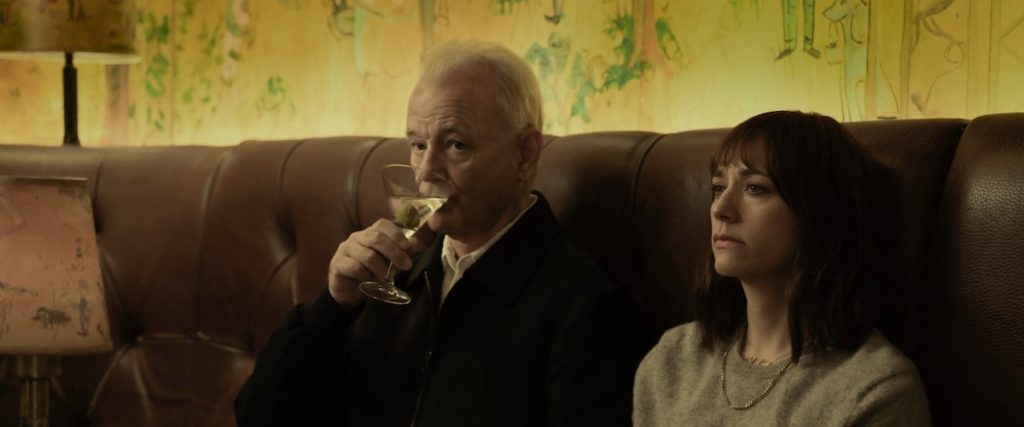
- ON THE ROCKS (dir. Sofia Coppola)
I assure you, I’m just as surprised as you are to see this one sneak in. On first blush, I took On the Rocks as little more than an enjoyable trifle, a lesser entry in both the filmography of Sofia Coppola and the late-period Bill Murray canon. But in the days and weeks that followed, I found it stuck with me far longer than I expected. It may be just a nice little movie, but it’s a really nice little movie, filled with likable characters played by immensely watchable actors, zipping around New York City in a way in which I long to return to. It’s also deceptively personal: surely Murray can see some of himself in this aging wiseass lothario, and both Coppola and star Rashida Jones know a thing or two about dealing with larger-than-life fathers. It’s just comfy, and I look forward to returning to it time and again.

- POSSESSOR (dir. Brandon Cronenberg)
Poor Tenet. Not only was it tossed pitilessly into empty movie theaters long before it was safe to do so, but by the time it was finally released on home video, it had been beaten to the punch. Brandon Cronenberg’s Possessor is the mindbending sci-fi action film Tenet wishes it was, disorienting and disquieting while also achieving coherence and having a point to make. In the alternate timeline in which Tenet was able to achieve its dreams of blockbuster box office, Possessor may well have languished in VOD obscurity, its upsetting body horror and shocking ending being some truly strong medicine (clearly, it runs in the family). But in the 2020 that we got, Possessor articulated the existential dread we all were feeling. Sorry, Mr. Nolan– better luck next time.
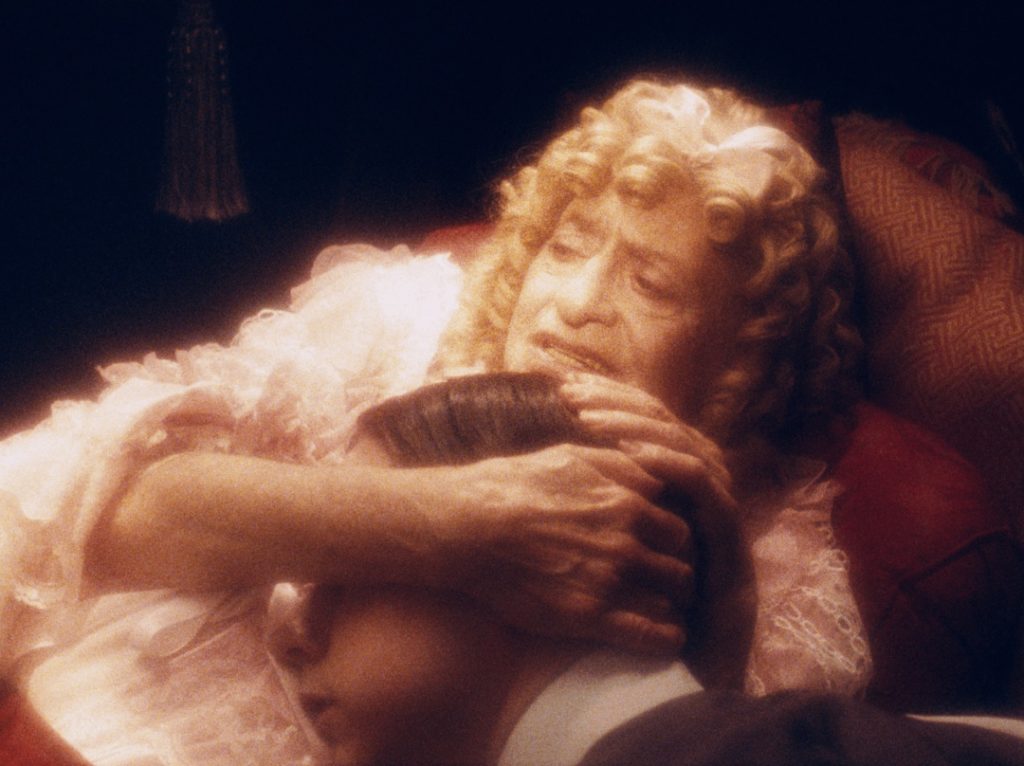
- THE TWENTIETH CENTURY (dir. Matthew Rankin)
The superlative of “Most Pleasant Surprise” would have to go to The Twentieth Century, Matthew Rankin’s deliriously perverse “biopic” of Canadian Prime Minister William Lyon Mackenzie King. I can’t begin to fathom how one’s brain would have to work to even come up with this film, an absurd, campy approximation of the technicolor fantasias of Powell and Pressburger on a thrift store budget. The aggressively weird humor certainly won’t be for all tastes, but its mix of left-field non sequiturs and legitimately stunning visuals kept a giddy smile on my face for the entire running time. The Twentieth Century announces Rankin as the latest in the proud tradition of perverse Canadian fabulists that includes Guy Maddin and the elder Cronenberg, and I can’t wait to see where he goes next.

- FEELS GOOD MAN (dir. Arthur Jones)
A funny thing happened to me in the weeks after watching Feels Good Man, the chilling documentary about Pepe the Frog creator Matt Furie: I started quoting its title in conversation. This is, of course, not unusual– the entire film is about the frog’s memetic spread from alt-comix character to alt-right icon– but, crucially, I was quoting it thinking of the line’s original context in Furie’s Boys Club comic book, and not its ubiquity on the seamier side of the internet. In other words, filmmakers Arthur Jones and Giorgio Angelini have done the seemingly impossible: they’ve liberated Pepe the Frog from the “meme magick” of the 4chan overlords and allowed him to be viewed as the sweet, laid back character he was created to be. Feels Good Man is as insightful a film as I’ve seen about the profoundly weird state of affairs in which we’ve found ourselves, and should be shown by any future history teacher who hopes to explain the late 2010s to their baffled students. But it also manages to be something weirder and more wonderful: in its vindication of Furie’s creation, it’s the Thin Blue Line of cartoon frog documentaries.
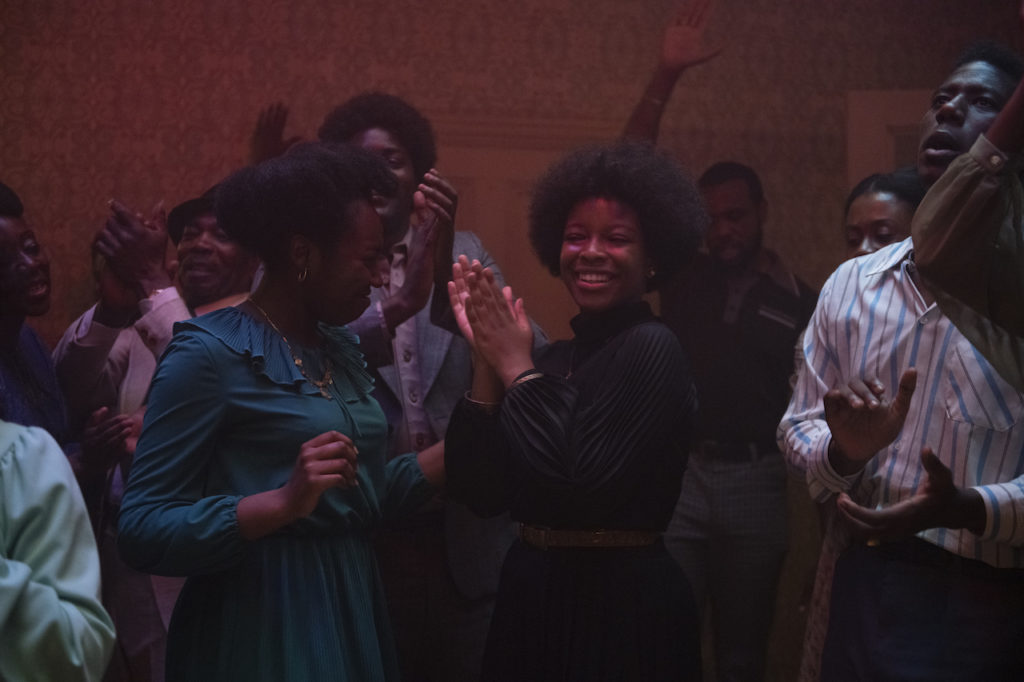
- LOVERS ROCK (dir. Steve McQueen)
There’s no way Steve McQueen could have known how badly we’d need Lovers Rock. On its face, the film– the centerpiece of the director’s staggering five-feature anthology Small Axe— might feel slight: it barely cracks the one-hour mark, and takes place almost entirely inside a single house over the course of an all-night dance party. But in his effort to recreate this slice of life from the world of the Caribbean immigrant population in London in the 1980s, McQueen tapped into the sheer joy of gathering with others and vibing over great music, which is something just about everyone on earth is missing right now. Lovers Rock contains moments of drama and heartbreak (as in the other films in the series, McQueen makes no bones about the hardships suffered by people of color in a hostile society), but the moments that linger are the ecstatic dance sequences, in which McQueen’s camera captures the tiniest gestures and facial expressions, conveying oceans of emotion without a single word spoken. In the film’s most celebrated sequence, a singalong erupts to Janet Kay’s “Silly Games,” and continues unabated for several verses after the record ends. In a moment when partying is impossible, Lovers Rock amounts to a VR trip to a faraway world.
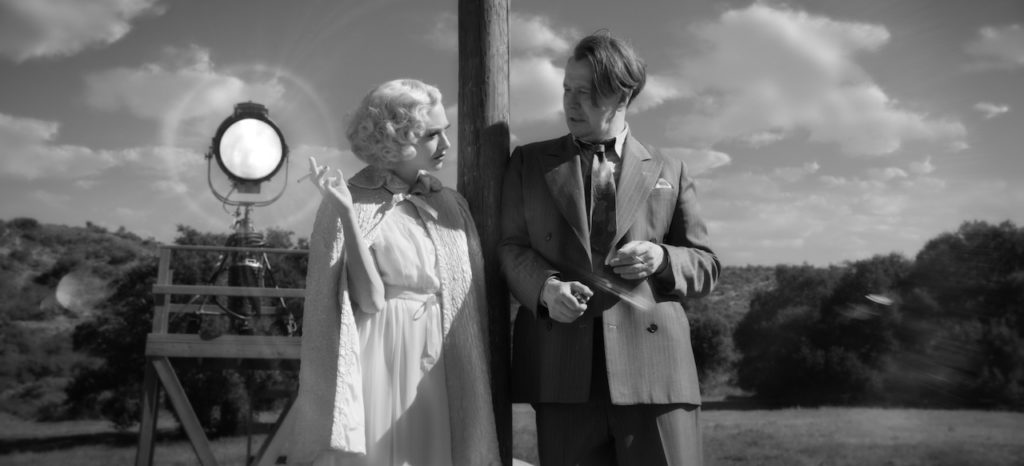
- MANK (dir. David Fincher)
There’s an argument to be made that Citizen Kane isn’t really about William Randolph Hearst, but rather uses the intimidatingly powerful media tycoon as a vessel to explore the inherent sickness and emptiness of terminal capitalism. Likewise, Mank isn’t really about Herman J. Mankiewicz’s struggle to write the screenplay for what would become the Greatest Movie Ever Made (or, for that matter, the continuing question of authorship between Mankiewicz and Orson Welles). Rather, David Fincher’s Mank uses Mankiewicz’s Zelig-like position at the crux of Hollywood, jazz-age journalism, and high dinner party society to examine the media’s role in American politics, which in the 1930s and early ‘40s was evolving in strange and surprising ways. Of course, if it was only this, it could easily become a didactic slog. While the material may be heavy, Fincher is clearly having a ball, turning classic Hollywood into just as much of a playground as Tarantino did in Once Upon a Time in Hollywood (or, for that matter, Robert Zemeckis in Who Framed Roger Rabbit?). Mank is easily Fincher’s weirdest and most dense film; perhaps not coincidentally, it may also be his most fun.
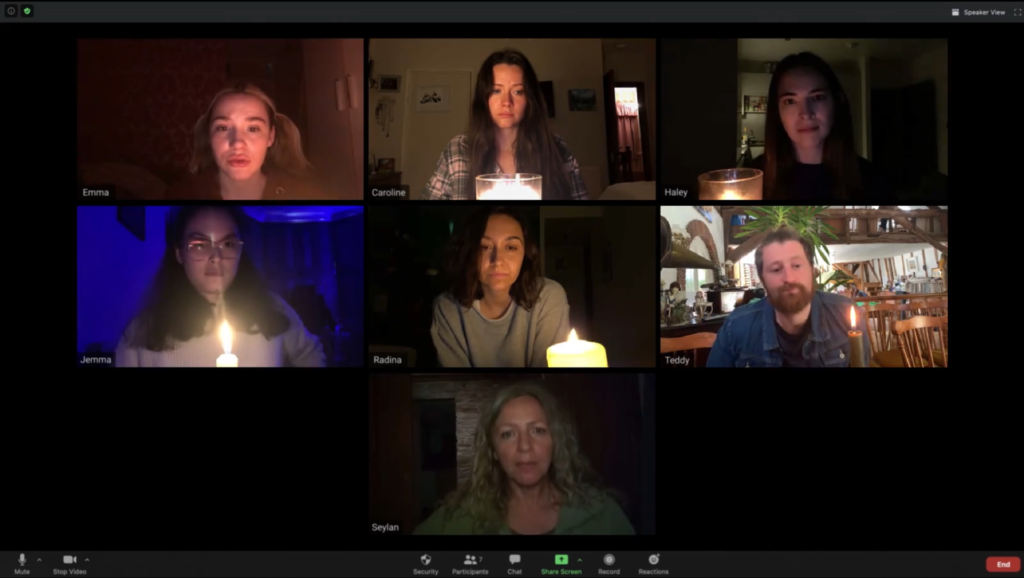
- HOST (dir. Rob Savage)
The crazy thing about Host is that it didn’t actually need to be good. The chutzpah of director Rob Savage and his team of actors and co-producers to shoot a horror film remotely and have it ready to release just months into the lockdown would have been enough to make it one of the most talked-about movies of the summer. But Savage and his crew used their limitations to craft something truly special, surpassing the inherent novelty of the premise to become something of an instant classic, and arguably one of the best found-footage horror films ever made. It helps that, at just short of an hour (in other words, the length of a Zoom call), there’s little time for filler, allowing Savage to sprint from one brutal scare to another. It also helps that he assembled a fantastic ensemble of actresses, who rise to the unusual task of having to spend the entire running time staring directly into the camera. Like the original Godzilla, Savage and company tap into a very specific moment of cultural insecurity, yet create something that will likely be enjoyed by generations.
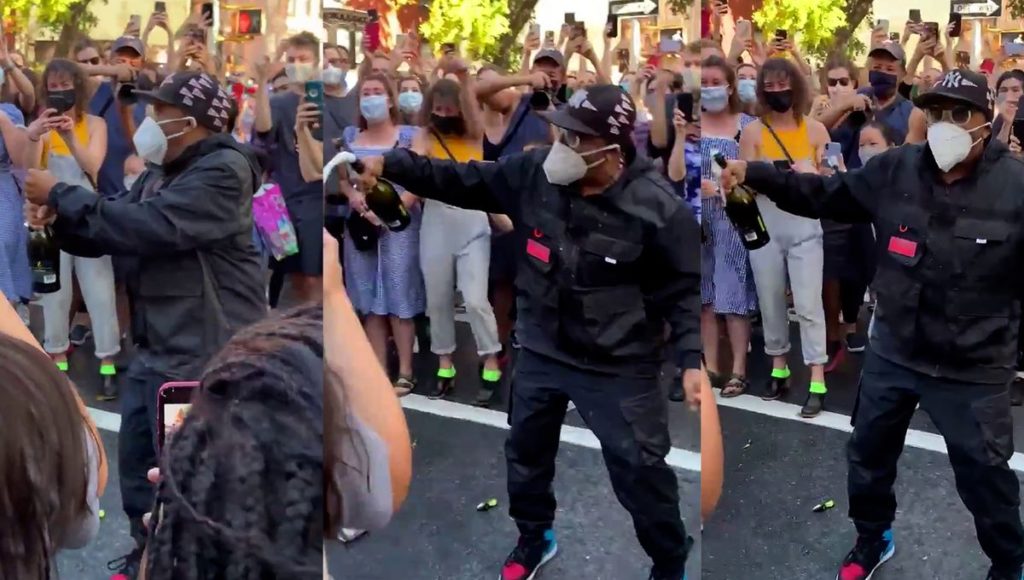
Spike Lee pops champagne in a public celebration in Brooklyn following Joe Biden’s presidential victory.
- (tie) DA 5 BLOODS / DAVID BYRNE’S AMERICAN UTOPIA (dir. Spike Lee)
At least someone had a good year. Hot on the heels of his first-ever Oscar win, Spike Lee came into our homes with not one, but two of the year’s absolute best films. In Da 5 Bloods, Lee draws a direct line between the governmental corruption and racial injustice of the Vietnam War and the strains in which we currently find ourselves embroiled, delivering one of the most righteous and thoughtful joints of his career (as well as a career-best lead turn for the great Delroy Lindo, and an iconic, penultimate performance from the late Chadwick Boseman). In American Utopia, meanwhile, Lee grants us an escape pod into the joyful, fractured reality of Talking Heads frontman David Byrne. A spiritual sequel to the concert film all-timer Stop Making Sense, Utopia finds both Byrne and Lee at their most dynamic, creating something that at times plays like a new wave Busby Berkeley musical. Together, the two films create something of a total 2020 package: one for when you need to feel the urgency of the moment, and one for when you desperately need to escape it.
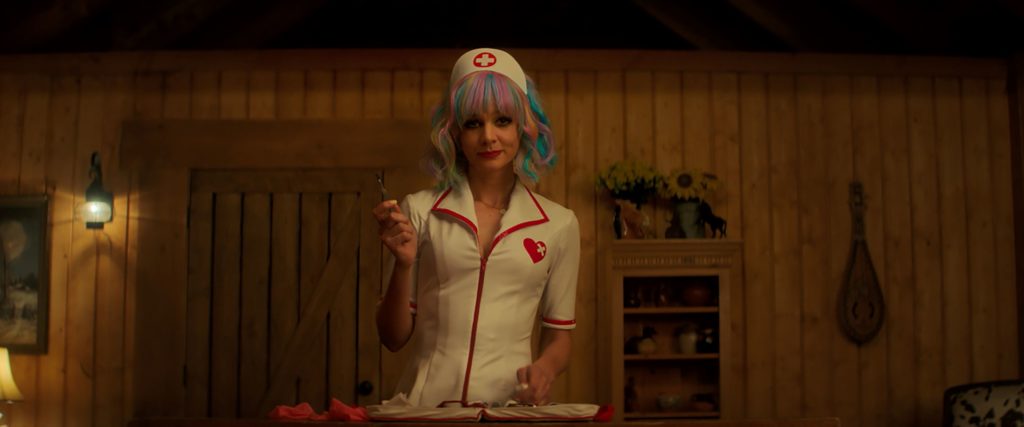
- PROMISING YOUNG WOMAN (dir. Emerald Fennell)
As I write this, Promising Young Woman has only been officially released for two days (and just barely, given that its theatrical-only release date coincided with a fresh wave of safety shutdowns), but it’s already in the running for the most divisive and controversial film of the year. This is no surprise; its morally complicated heroine, its heady cocktail of black humor and deadly serious commentary, and its truly harrowing ending were never going to be for everybody. But the fact that it’s become such a topic of debate is a testament to writer-director Emerald Fennell’s precision in her skewering of an endemic toxicity which shows no real signs of abating three years into our ongoing cultural reckoning. It’s also a testament to the performance of Carey Mulligan, who carries the film’s righteous fury as confidently as any marquee superstar on the planet. Love the film or hate it, the one thing you can’t do is ignore it.
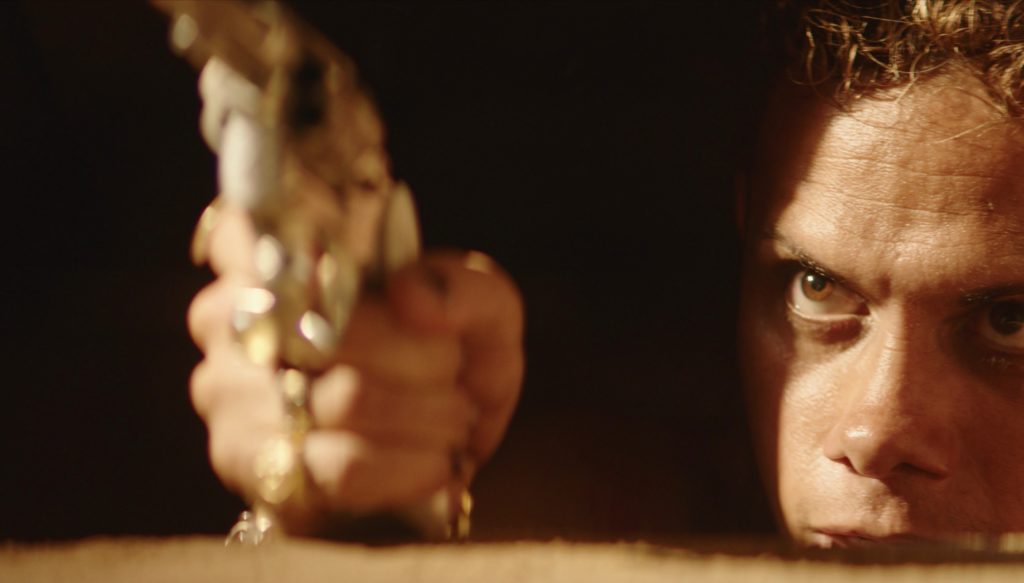
- BACURAU (dir. Kleber Mendonça Filho & Juliano Dornelles)
Bacurau was one of the first films I watched after lockdown (it was among the very first released in the now-familiar “virtual screening” model, which I suspect will stick around long after theaters have reopened), and in many ways it set the mood for everything that would follow. It was everything I needed: visceral, bleakly funny, and furious about the general State of Things, while also delivering a hopeful (or at least cathartic) ending. When I recommend Bacurau to people, I’m never really sure how to frame it; it has elements of science fiction, neorealism, revenge horror, westerns, and even a song or two, but it never quite fully falls into any of those genres. Ultimately, all you really need to know is that this is a film in which a conniving politician withholds relief and medicine to a population that desperately needs it, and gets every bit of what’s coming to him. If that doesn’t sell you at the end of 2020, then I don’t know what to tell you.
Right now Boston’s most beloved theaters need your help to survive. If you have the means, the Hassle strongly recommends making a donation, purchasing a gift card, or becoming a member at the Brattle Theatre, Coolidge Corner Theatre, and/or the Somerville Theatre. Keep film alive, y’all.

